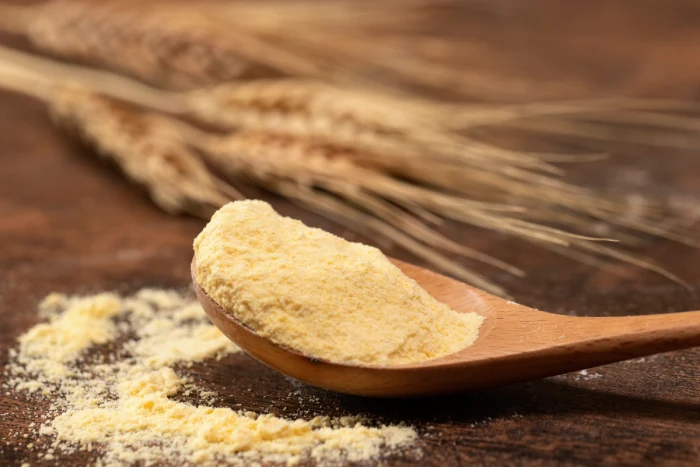Exploring Ice Plant’s Insulin-Boosting Properties
The ice plant (Mesembryanthemum crystallinum) has garnered attention in the scientific community for its potential therapeutic applications, particularly in diabetes prevention. Recent research has delved into the insulin secretion effects of ice plant extract (IPE) and its active compound, D-pinitol, providing compelling evidence for their potential as functional foods in managing diabetes and related metabolic disorders.
In a groundbreaking study, researchers investigated the mechanisms behind IPE and D-pinitol’s impact on insulin secretion using a rat insulin-secreting β-cell line (INS-1) and diabetic rat models. The findings revealed significant improvements in glucose-stimulated insulin secretion (GSIS) and the upregulation of key insulin-related pathway factors.
The study employed various methods to assess the efficacy of IPE and D-pinitol, including GSIS tests, Western blotting, and measurements of the glucose-stimulated index (GSI). Researchers also examined the expression levels of crucial insulin-related pathway factors, such as insulin receptor substrate-2 (IRS-2), phosphoinositide 3-kinase (PI3K), Akt, and pancreatic and duodenal homeobox-1 (PDX-1) in INS-1 cells.
The results were striking, with GSI values of 8.17 ± 0.22 for IPE (25 μg/mL) and 12.21 ± 0.22 for D-pinitol (100 μM), representing statistically significant increases. Moreover, both IPE and D-pinitol were found to upregulate the expression of insulin-related pathway factors, suggesting a multifaceted approach to enhancing insulin secretion and sensitivity.
In vivo studies using diabetic rat models further supported the potential of IPE as a diabetes management tool. Administration of IPE led to reduced excessive weight gain and improved glucose tolerance, as evidenced by decreased oral glucose tolerance test area under the curve (OGTT-AUC) values. The extract also demonstrated liver-protective and lipid-lowering effects, reducing serum alanine aminotransferase (ALT), aspartate aminotransferase (AST), triglyceride, and total cholesterol levels.
Mechanistically, IPE was found to enhance insulin signaling by increasing insulin receptor substrate 1 (IRS-1) phosphorylation, thereby improving glucose metabolism and insulin sensitivity. These findings collectively underscore the potential of D-pinitol and IPE as functional foods for improving insulin secretion and managing metabolic dysregulation associated with diabetes.
Commentary by SuppBase columnist Alice Winters:

The recent study on ice plant extract (IPE) and its active compound D-pinitol presents a fascinating glimpse into the potential future of diabetes management through natural interventions. As a supplement and health product commentator, I find this research particularly intriguing for several reasons.
Firstly, the multifaceted approach of IPE in addressing various aspects of diabetes and metabolic syndrome is noteworthy. Not only does it enhance insulin secretion, but it also improves glucose tolerance, liver function, and lipid profiles. This broad spectrum of benefits positions IPE as a potential powerhouse in the realm of natural diabetes management.
The mechanistic insights provided by this study are especially valuable. By elucidating the pathways through which IPE and D-pinitol influence insulin signaling and glucose metabolism, the researchers have laid a solid foundation for future investigations and potential product development. The upregulation of key insulin-related pathway factors like IRS-2, PI3K, Akt, and PDX-1 suggests a comprehensive modulation of the insulin signaling cascade, which could translate to more effective diabetes management strategies.
However, it’s crucial to approach these findings with measured optimism. While the results are promising, we must remember that this study was conducted primarily in cell lines and animal models. The translation of these benefits to human subjects requires further extensive research, including rigorous clinical trials to establish efficacy and safety profiles in diverse populations.
From a market perspective, the potential of IPE and D-pinitol as functional food ingredients is exciting. The nutraceutical industry is constantly seeking natural compounds with scientifically-backed health benefits, and this research positions ice plant extract as a strong contender in this space. However, challenges remain in terms of scalability, standardization of extract production, and ensuring consistent D-pinitol content across different batches.
It’s also worth noting the potential environmental impact of increased ice plant cultivation. As demand for these extracts grows, sustainable farming practices must be implemented to prevent ecological disruption, especially considering the plant’s natural habitat in coastal and arid regions.
Regarding safety and regulatory aspects, while ice plant has a history of use as a food source, its concentrated extract and isolated compounds like D-pinitol will likely require thorough safety assessments before widespread use in supplements or functional foods. Potential interactions with diabetes medications and effects on individuals with other health conditions need to be carefully evaluated.
In conclusion, this research on ice plant extract and D-pinitol represents a significant step forward in our understanding of natural compounds with anti-diabetic potential. However, as with any promising new supplement ingredient, a balance of enthusiasm and caution is warranted. Consumers and healthcare providers should stay informed about ongoing research but avoid premature adoption without sufficient clinical evidence in humans. The journey from promising laboratory findings to safe, effective, and widely available health products is long and complex, but studies like this pave the way for innovative approaches to managing one of the most prevalent health challenges of our time.



